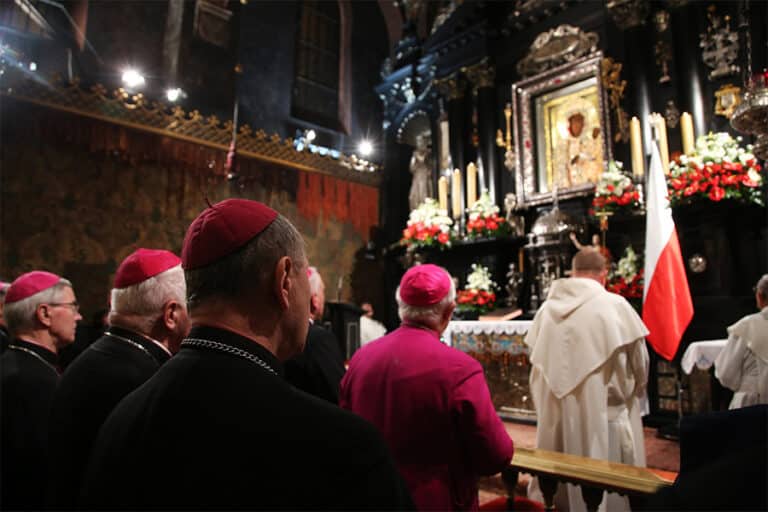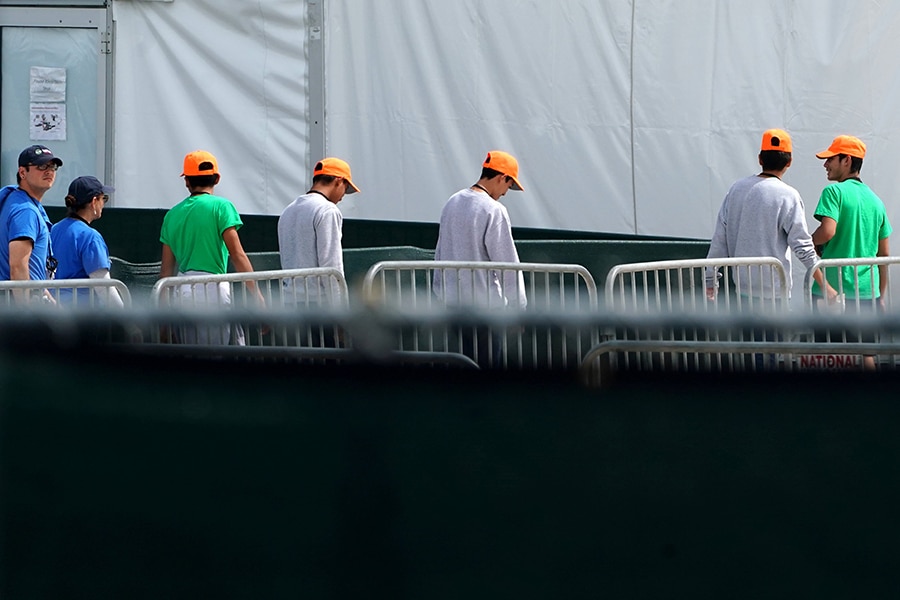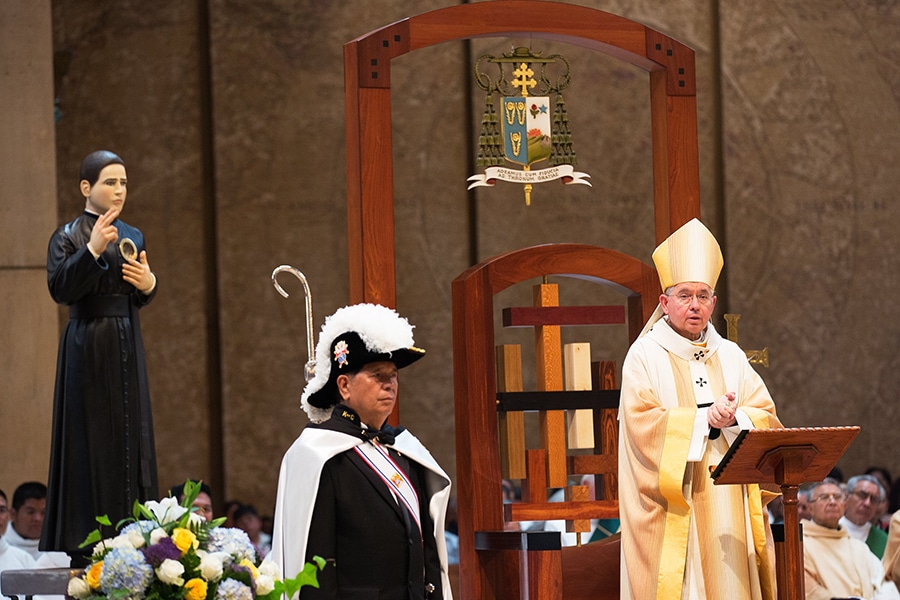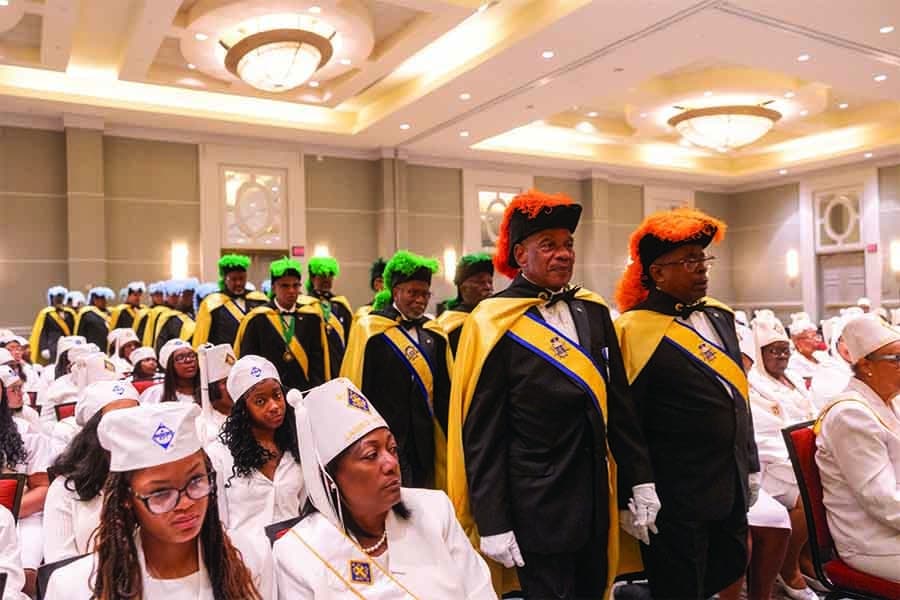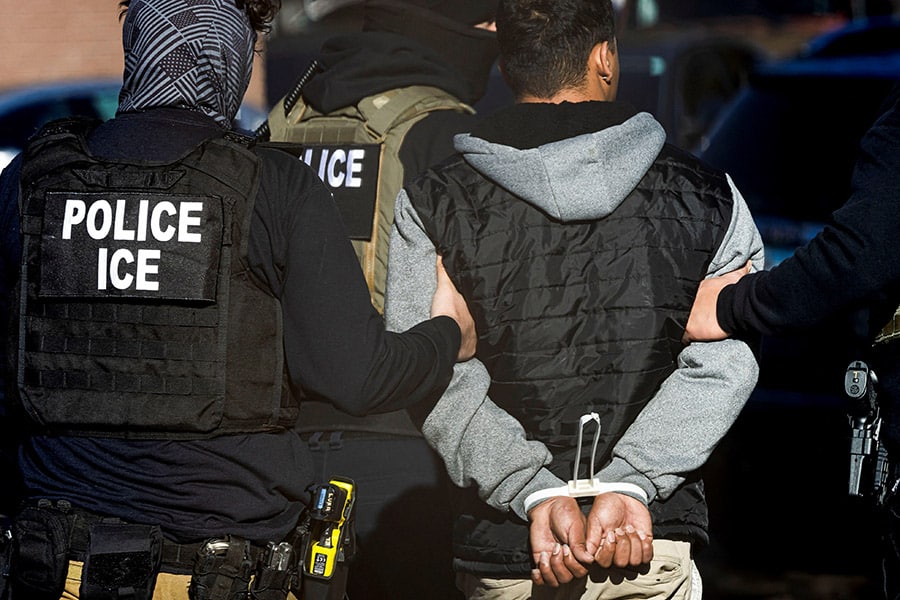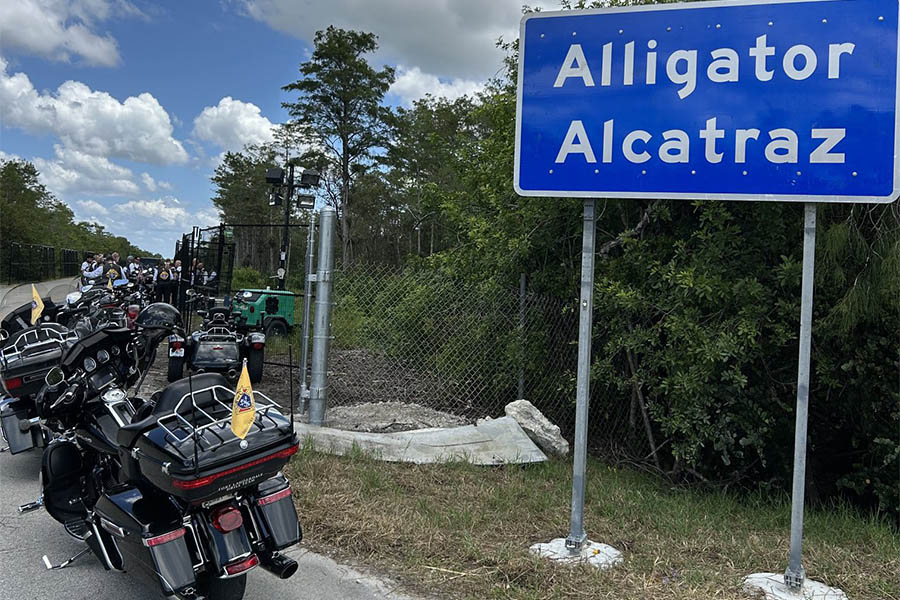WARSAW, Poland (OSV News) — Cardinal Grzegorz Rys of Lódz spoke up after two retired bishops sparked outrage with their migration and border policy remarks at the Marian shrine of Jasna Góra earlier in July. In a pastoral letter read in all parishes of his Archdiocese of Lódz July 20, he said that a “conversion of language” is needed in the migration debate. “We need the language of Jesus,” he said.
Cardinal Rys did not speak directly of remarks of two retired bishops at Jasna Góra Marian shrine, but his letter came a week after two retired prelates — Bishop Wieslaw Mering of Wloclawek and Bishop Antoni Dlugosz of Czestochowa — warned of immigration threats to Poland’s borders — remarks that have been officially protested by the Polish Ministry of Foreign Affairs.
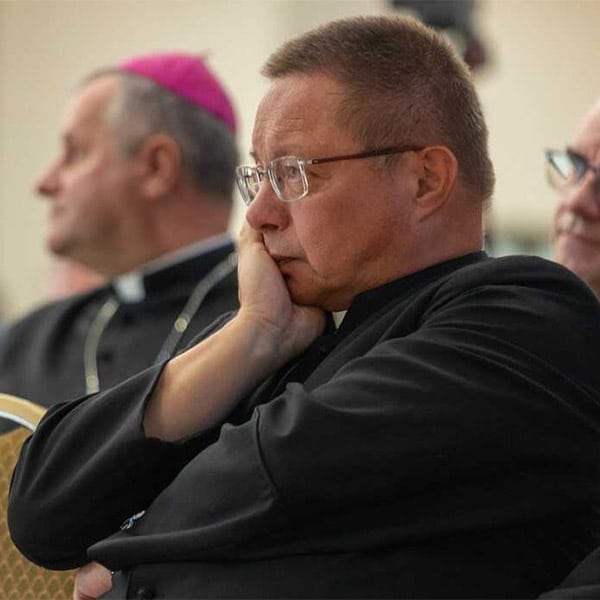
On July 11, during the traditional Call of Jasna Góra evening prayer, or “Apel Jasnogórski,” Bishop Dlugosz praised the “Defenders of the Border” movement, a nationalist vigilante group that patrols Poland’s western frontier, expressing concerns about “the Islamization of Europe,” and warning of “hundreds of thousands of migrants flooding into Poland.”
“Mother of God, you know that Poles passed the test when they had to open their doors to millions of fleeing Ukrainians. And in the name of love for their neighbors, they were able to pay the highest price for helping Jews,” the bishop said, emphasizing at the same time that accepting illegal migrants is not in Poland’s interest and is not in line with the principle of mercy.
Bishop Mering, speaking July 13, said that, with illegal immigration, “the borders of our country are threatened both in the west and in the east.”
In an evening Mass for participants of the Radio Maryja Family pilgrimage, Bishop Mering said, “We are ruled by people who describe themselves as Germans,” directly criticizing the Donald Tusk-led Polish government, known for its friendly relations with neighboring Germany.
“In the 18th century, one of the Polish poets, Waclaw Potocki, said: ‘As long as the world exists, a German will never be a brother to a Pole.’ History has terribly proven the truth of this saying,” said Bishop Mering, to applause.
In an unprecedented move, the Polish government’s response was swift and forceful. The Ministry of Foreign Affairs summoned the Vatican’s ambassador and delivered a diplomatic note, known for its French name “démarche,” or diplomatic protest, condemning the bishops’ statements as contrary to the state agreement between Poland and the Vatican, but also violating “the fundamental principles of human dignity and the sovereignty of the government of the Republic of Poland.”
The démarche was presented July 15 by the Polish ambassador to the Holy See, Adam Kwiatkowski, to Msgr. Javier Domingo Fernández González, Head of Protocol of the Holy See.
The ministry argued that issues of border policy and national security “should not be the subject of commentary by representatives of the Catholic Church” and warned that the remarks undermined Poland’s foreign relations and internal stability.
Not mentioning the government’s action either, Cardinal Rys wrote in his July 20 pastoral letter that “Hate, fear of the ‘foreigner,’ stereotypes,” are becoming “more important arguments than human and evangelical reasons.”
Meanwhile, Catholic social teaching “clearly states that EVERY PERSON has the right to choose where to live,” the cardinal wrote in capital letters.
Tensions against the bishops and the government, and between the Catholic hierarchy, come amid heightened tension over Germany’s policy of returning to Poland thousands of migrants who have crossed the border illegally. Poland restored border controls on the German border on July 7, despite being part of the Schengen Area — a group of 29 European countries that have abolished passport and other border controls at their mutual borders.
Other prelates also spoke up amid tensions, with Archbishop Józef Kupny of Wroclaw reminding the faithful that German-Polish disagreements come as his western Polish city observes the “Year of Reconciliation” to commemorate the 60th anniversary of the groundbreaking 1965 letter from Polish bishops to German bishops, which included the historic phrase: “We forgive and ask for forgiveness.”
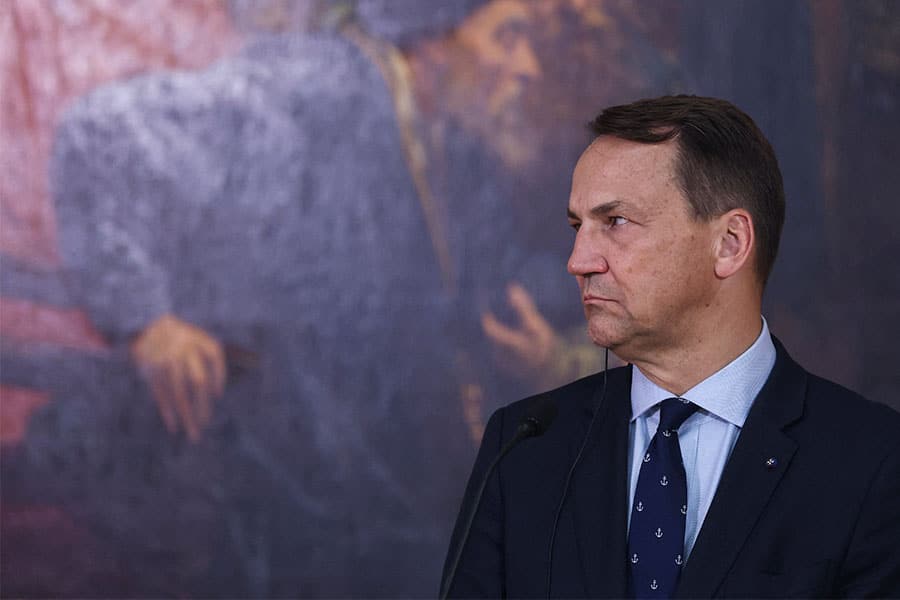
The historic letter, signed by Cardinal Stefan Wyszynski and Cardinal Karol Wojtyla — the future Pope John Paul II — became a cornerstone of postwar reconciliation between the two nations.
“All sorts of comments and harsh words are being thrown around, stirring up public opinion and deepening divisions. I can’t accept that,” Archbishop Kupny said in his comments to KAI, Poland’s Catholic information agency.
For his part, Bishop Krzysztof Zadarko, who leads the Polish bishops’ council on migration, blasted the government and told PAP, the state press agency, that grassroots border initiatives reflect a “crisis of the state and its services, especially poor government communication.”
He noted that many Poles are anxious about security and migration because of a “lack of honest information on what legal and illegal migration actually are,” calling for a “wise migration policy, which Poland currently lacks.”
Tomasz Krzyzak, a journalist at Poland’s Rzeczpospolita newspaper and a Catholic, believes that the government’s reaction to the bishops’ words was exaggerated, but, at the same time, the bishops’ remarks at Jasna Góra shrine “crossed the line.”
“The talk of a conflict between the church and state is greatly exaggerated by the government itself. The government’s reaction was completely disproportionate to what actually happened,” Krzyzak told OSV News.
The journalist also said that the situation amounted to “two retired bishops making statements uncomfortable for the government,” unnecessarily “inserting themselves into the political debate.”
Krzyzak emphasized that the retired bishops’ remarks risked making the church in Poland a partisan player. “I would expect bishops to call for peace, for reconciliation, and to urge the government to finally work on a truly wise migration policy, which Poland lacks,” he said, echoing Bishop Zadarko’s words.
For Krzyzak, the controversy underscores a broader issue: “Every statement by a clergyman is perceived through the prism of the entire church. A priest, regardless of rank, who comments on politics, risks crossing the line between shepherd and political actor.”
At the same time, the Polish government’s strong response has led some to suspect that it is using the controversy to either showcase its independence from the church or to deflect attention from its own struggles to articulate a clear migration policy.
“Jasna Góra should not be a place to do politics. Yet in a Poland where faith, identity, and politics remain deeply intertwined, the temptation to cross that line remains strong,” Krzyzak noted, with many commentators also emphasizing that the bishops are often criticized for their detachment from political reality and not commenting on anything that would bring criticism on the hierarchy itself.
The government’s démarche was also criticized for its inaccuracies, such as claiming that every individual statement from the bishop is voicing a line of the Polish bishops’ conference.
Commenting on the formal complaint, Father Dariusz Kowalczyk, a professor at the Pontifical Gregorial University in Rome, told KAI that, “it looks as if it was written by someone in a hurry, under the influence of emotions and ideological zeal, and at the same time by someone who is simply incompetent.”
For his part, Cardinal Rys criticized stirring controversies as having “little to do with Christianity” and threatening “truly Gospel-oriented” initiatives such as Caritas help centers for Ukrainian refugees.
“For now, the prevailing discourse both harms newcomers and undermines the initiatives, motivations, and strengths of those who want to help them,” he said.
The episode highlights Poland’s tense church–state relations as migration and identity remain flashpoints in public life.
Read More Immigration & Migration
Copyright © 2025 OSV News

